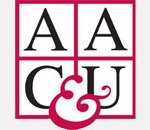 There’s no easy time to make decisions about college. But today, with attendance costs climbing into the stratosphere (the average expense for tuition and fees grew 24 percent between the 2007-2008 and 2012-2013 school years) and the post-college job market equally uninviting, the choices are murkier than ever.
There’s no easy time to make decisions about college. But today, with attendance costs climbing into the stratosphere (the average expense for tuition and fees grew 24 percent between the 2007-2008 and 2012-2013 school years) and the post-college job market equally uninviting, the choices are murkier than ever.
Should 20-somethings wait out economic turmoil biding their time in college or graduate school? Enter a vocational program to learn specific, career-ready skills? Or skip post-high school work altogether and do their best to stay afloat in a shaky job market?
With young professionals flooding recruiters’ inboxes faster than companies can make room for them, supply, it seems, far exceeds demand. As such, there’s been lots of talk lately about what employers want. And while I certainly can’t speak for every boss out there, I have been thinking about what Dragonfly needs in new hires. (Hint: it’s not just a journalism degree or a flair for Photoshop.)
Broad skills matter most
In April, the Association of American Colleges and Universities (AACU) released the results of a survey that bodes well for liberal arts-educated professionals. In response to whether critical thinking, problem-solving, and communication skills were more important than a job applicant’s undergrad major, a whopping 93 percent of respondents answered “yes.” And 80 percent thought every college student should acquire knowledge in the liberal arts and sciences.
Study participants were leaders of more than 300 business and nonprofits nationwide. And as—full disclosure—a liberal arts grad myself, I have to agree with them. When I size up new writers and editors for the Dragonfly team, I’m not after a degree from a brand-name university or a hyper-specific college major. I’m looking for somebody who can think.
Someone who can approach a novel problem and come up with a solution. Who can take data, research, interview transcripts, and press releases and explain their significance in plain English—and then turn those disparate pieces into a compelling story. That’s what liberal arts degrees are designed to do. They force students to work across disciplines to confront brand-new problems—in other words, to learn how to learn.
What Dragonfly needs
Not every liberal arts grad will make the most of skills gained during college. And some will become expert problem solvers without ever setting foot in a university classroom. But it’s been my experience that liberal arts colleges consistently produce graduates with the ability to put their knowledge to work, no matter what the day’s challenge—an attribute with the potential to not just land first jobs but define entire careers.
That’s not to say that one area of study or type of degree is more valid or valuable than another. And certainly, our country needs a generation of scientists, programmers, and technicians more than ever before. But I know from experience that the space in which Dragonfly (and our clients) works requires more than just one skill set.
Major in English or writing? That’s great. But it’ll take more than that to convince me you’re a fit for Dragonfly. Count me in with that 93 percent. Show me you can solve problems, and then you’ll have my attention.
Samantha Enslen runs—and hires awesome writers to work for—Dragonfly Editorial.
Remote Employee Onboarding, Done Right
One of Dragonfly Editorial’s recent hires shares tips to help you strengthen your remote employee

